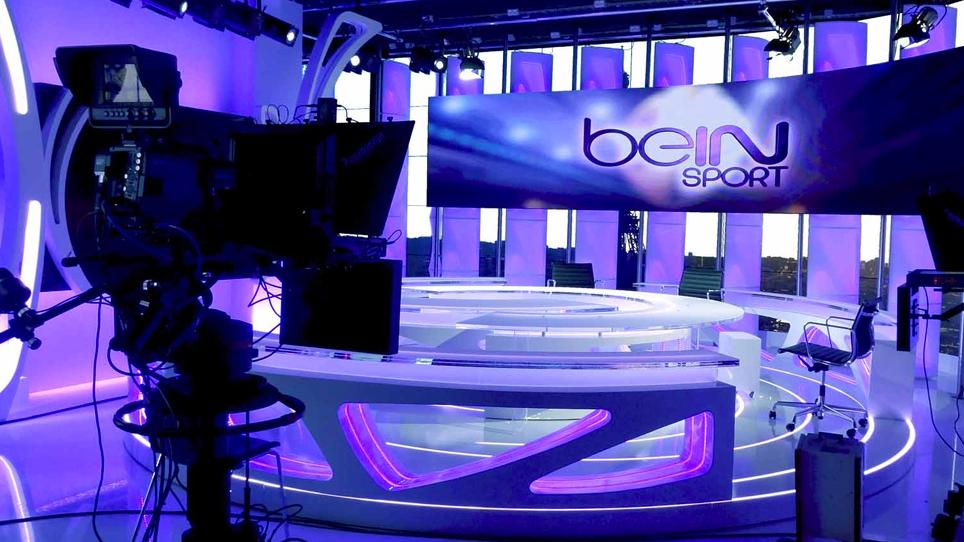After a four-year ban as well as a major pirating dispute, Saudi Arabia is reportedly pondering a stake in Qatar’s state-funded sports broadcaster, beIN.
Saudi Arabia’s sovereign wealth fund is allegedly eying an investment in Qatar’s beIN Media Group— a broadcaster it had previously banned for years, people familiar with the matter told Bloomberg.
The Public Investment Fund is among parties that have formally expressed interest in teaming up with Doha-based BeIN, according to the individuals who requested anonymity to disclose private information.
US private equity firms are also eager to invest, the sources added.
Speaking to Doha News on the potential investment on Sunday, Professor of Sport and Geopolitical Economy at SKEMA Business School Simon Chadwick cited the saying ‘it’s a thin line between love and hate’.
“After all the animosity in recent years between Qatar and Saudi Arabia, it appears that the former’s BeIn business is on the cusp of Saudi Arabia’s Public Investment Fund acquiring a stake in BeIN,” Chadwick said.
“Officials in Qatar are currently pondering what the country’s post-World Cup landscape should look like, and some are concerned about the scale, reach and influence of Qatar’s activities moving forward. Hence, they are seeking to build alliances that will ensure the country’s continuing prominence and relevance.
“Qatari strategy in business and geopolitics is prone towards hedging – configuring a way of maintaining healthy relationships with as many key stakeholders as possible,” he added.
“Reports that both Saudi and US investors may be about to acquire a stake are therefore entirely in keeping with normal strategy. Links to the US would bring geopolitical stability to one of Qatar’s showcase assets, as well as providing access to the world’s most mature market for entertainment and broadcasting,” he noted.
However, there is still no guarantee that early-stage discussions will result in investments in the Doha-owned broadcaster. One of the sources suggested the broadcaster may potentially look into other options, such as an initial public offering.
“BeIn Media Group is considering a number of strategic options,” the company told Bloomberg News.
Kick off in regional sports relations?
In its native market in the Middle East, state-owned BeIN, which operates across five continents, has exclusive rights to broadcast some of the largest athletic events in the world, including the UEFA Champions League football tournament.
The channel is one of the most prominent sports broadcasters globally, with investors worldwide eager to jump on its success.
However, such influence often comes with political disputes.
Shortly after a blockade was imposed on Qatar in 2017 by a number of Gulf countries and Egypt, the sports network was blocked to millions of subscribers in Saudi Arabia.
Two months later, Saudi-linked outlet beoutQ began broadcasting content stolen from beIN Sport through Riyadh-based communications satellite operator, Arabsat.
BeoutQ’s sophisticated theft of intellectual property developed when it launched set-top boxes and started selling subscription packages to air English, Italian, Spanish, and German football games.
The channel also pirated numerous international sporting events including the Super Bowl LII, the UEFA Champions League Final, the NBA Finals, multiple Formula 1 races, and all 64 matches of the 2018 FIFA World Cup.
However, the 10-channel piracy entity only survived for two years.
In June 2020, the World Trade Organization (WTO) found that Saudi Arabia had breached its obligations under the organisation’s Agreement on Trade-related Aspects of Intellectual Property Rights (“TRIPS Agreement”) by refusing to take legal action against the Riyadh-linked pirate broadcaster “beoutQ”.
The WTO also found the Saudi government guilty of engaging “in the promotion of public gatherings with screenings of beoutQ’s unauthorised broadcasts, including the 2018 FIFA World Cup.
The dispute lasted for years and even continued after the blockade was officially lifted in January 2021. However, in October of that year, it was reported that Qatar and Saudi officials reached an agreement to lift the ban on beIN Sports in the kingdom.
The latest development comes amid an ongoing modernisation drive by Saudi Crown Prince Mohammed bin Salman Saudi Arabia who has opened up the kingdom to more western-style entertainment, notably professional sports.
“Shared ownership of BeIn with Saudi Arabia would help in solidifying relations between the two countries, whilst enabling Qatar to ally with an increasingly aggressive investor in sport,” Chadwick said.
“Saudi Arabia would bring strategic intent and financial resources, as well as considerable clout across the Middle East and North Africa – perhaps also in sensitive markets such as Russia and China. For the Saudi Arabian’s, who have been grappling with the complexities of establishing a rival to BeIn – an opportunity to become a shareholder in an established, ambitious rival, would solve several problems,” he added.
The kingdom is preparing to invest billions of dollars to become a centre for e-sports and has already hosted important events in boxing, golf, and F1 racing.
However, rights groups and advocates worldwide have pointed to this drive as a Saudi attempt to divert attention away from its rights records, dubbing it “sportswashing”.







